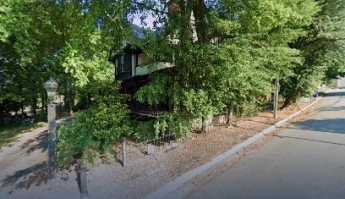In North Carolina, theft crimes are charged as larceny. Most larcenies will be considered felonies unless the property only has a low value and was not taken through force or burglary. What you may think is a minor charge can actually be serious, and not just because of potential jail time.
When you are facing theft charges, you need an experienced Winston-Salem theft and larceny attorney to defend you. A lawyer could evaluate your case and help you obtain the best possible legal result after counseling you on your options and the impact that a larceny conviction may have on you.
How Larceny Is Charged Under North Carolina Law
The severity of theft charges is usually based on the value of the property. You may have no idea what charges you may face until the prosecutor places a value on the property that was allegedly taken. North Carolina classifies its charges as follows:
- Misdemeanor larceny is when the property taken is valued at under $1,000.
- Felony larceny is when the property allegedly taken is valued at over $1,000 or property below that amount is taken through robbery or burglary.
- Misdemeanor possession of stolen goods is when the property possessed is worth less than $1,000.
- Felony possession of stolen goods is when the property is valued at over $1,000 or when the property was taken by burglary or robbery.
- Concealment of merchandise is when the shopper is apprehended for shoplifting before they leave the store. A first offense could lead to a suspended jail sentence.
Misdemeanor larceny can still result in a jail sentence of up to 45 days. The penalty may depend on whether you have a prior criminal record. Even if the jail sentence does not seem long, theft charges are viewed as a crime of dishonesty, and they can have a wide variety of impacts elsewhere in your life, including on your ability to find a job and your immigration status. Larceny may be a crime of moral turpitude that could lead to deportation.
One major penalty that you can be hit with besides jail time and restitution is forfeiture of any property that was used in the crime if the property is worth more than $2,000. Most often, this penalty gives law enforcement the legal right to seize your car.
The penalty can escalate significantly for felony larceny. The crime is classified as a Class H felony with a jail sentence between 4-8 months. Under North Carolina Sentencing Guidelines, the presumptive sentence is 5-6 months.
The Elements of a Larceny Offense
To win a case against you, the prosecutor must prove each element of the alleged crime. Larceny is a crime that requires the defendant to have had the intent to commit it.
Here are the elements that the prosecutor needs to prove to win a conviction:
- The property was taken.
- It was in the possession of another.
- It was carried away from them.
- The taking did not have the consent of the owner.
- There was an intent to deprive the owner of possession permanently.
- The person taking the property knew that they did not have a legal right to it.
Defenses to a Larceny Charge
It is possible to defend yourself against larceny charges. Here are some of the ways that you can defend the charges that you are facing:
- You only intended to borrow the property.
- Evidence was illegally seized from you.
- You did not know that you had the property in your possession.
- You thought you had a right to the property.
- Someone gave you the property.
- Police otherwise violated your rights.
Larceny charges are serious, no matter how the crime is charged. You should not attempt to handle them on your own. You could end up facing a serious punishment because it is the jury that determines the value of the property in a trial.








